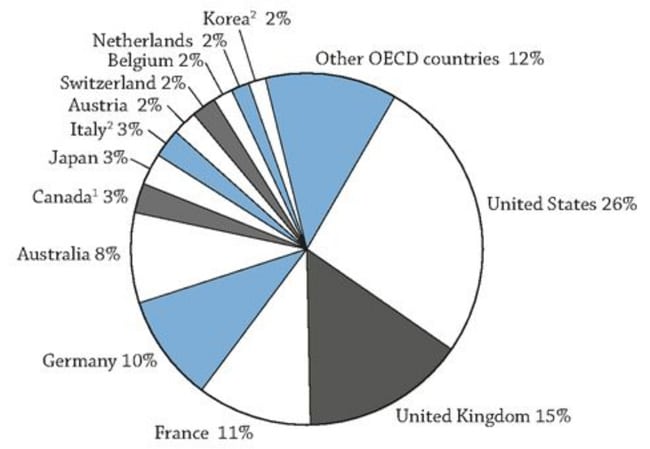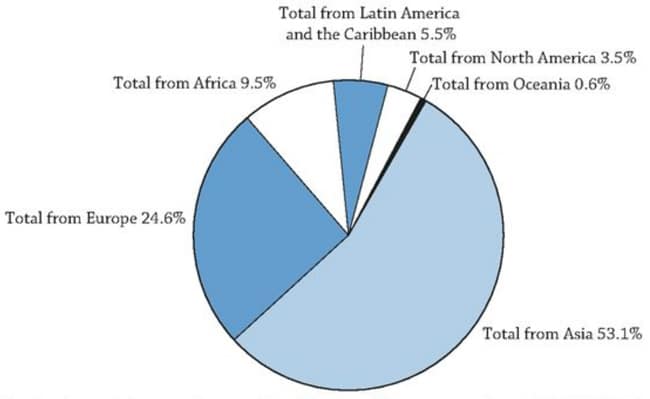OECD report highlights internationally mobile students in advanced higher education
The OECD’s annual Education at a Glance report is a handy reference for a wide range of education metrics across the Organisation for Economic Co-operation and Development’s 35 member-states. This year’s edition is no exception, and, among its many findings, it provides an interesting overview of international student mobility in advanced higher education - that is, at the master’s and doctoral levels.
Education at a Glance 2016 estimates that there were roughly 1.3 million international students enrolled in master’s and doctoral programmes in OECD countries in 2014, representing about 26% of all internationally mobile students throughout the OECD that year.
Overall, international students account for about 12% of all master’s-level enrolments in OECD countries, and 27% of enrolment at the doctoral level. For nearly all reporting OECD members, the largest proportion of international students (relative to total programme enrolment) is found in doctoral or equivalent programmes – the exceptions to that being Australia, Germany, Hungary, Poland, and Lithuania.
“With the emergence of the knowledge economy and of knowledge communities, research and the top professional services have become more and more internationalised,” says the report. “Accordingly, many students are seeking opportunities to study abroad at the master’s or doctoral level. International experience is [also] seen as valuable for researchers and professionals. For example, the European University Association recommends that ‘doctoral candidates should be able to take part in international research activities,’ [whether] through international collaborations or by studying abroad for all or part of a study programme.”
As you might expect, Europe accounts for a significant share of that mobility. The EU22 countries – that is, those that are members of both the European Union and the OECD – hosted 53% of all foreign master’s or doctoral students in 2014. And 25% of mobile advanced higher education students enrolled in an EU22 country came from another EU22 state.
Outside of Europe, North America is by far the most-attractive destination, hosting nearly a third of advanced internationally mobile students in 2014. Most of those landed in the US, which, with 26% of all master’s and doctoral-level students, was the world’s leading destination country by far.


















